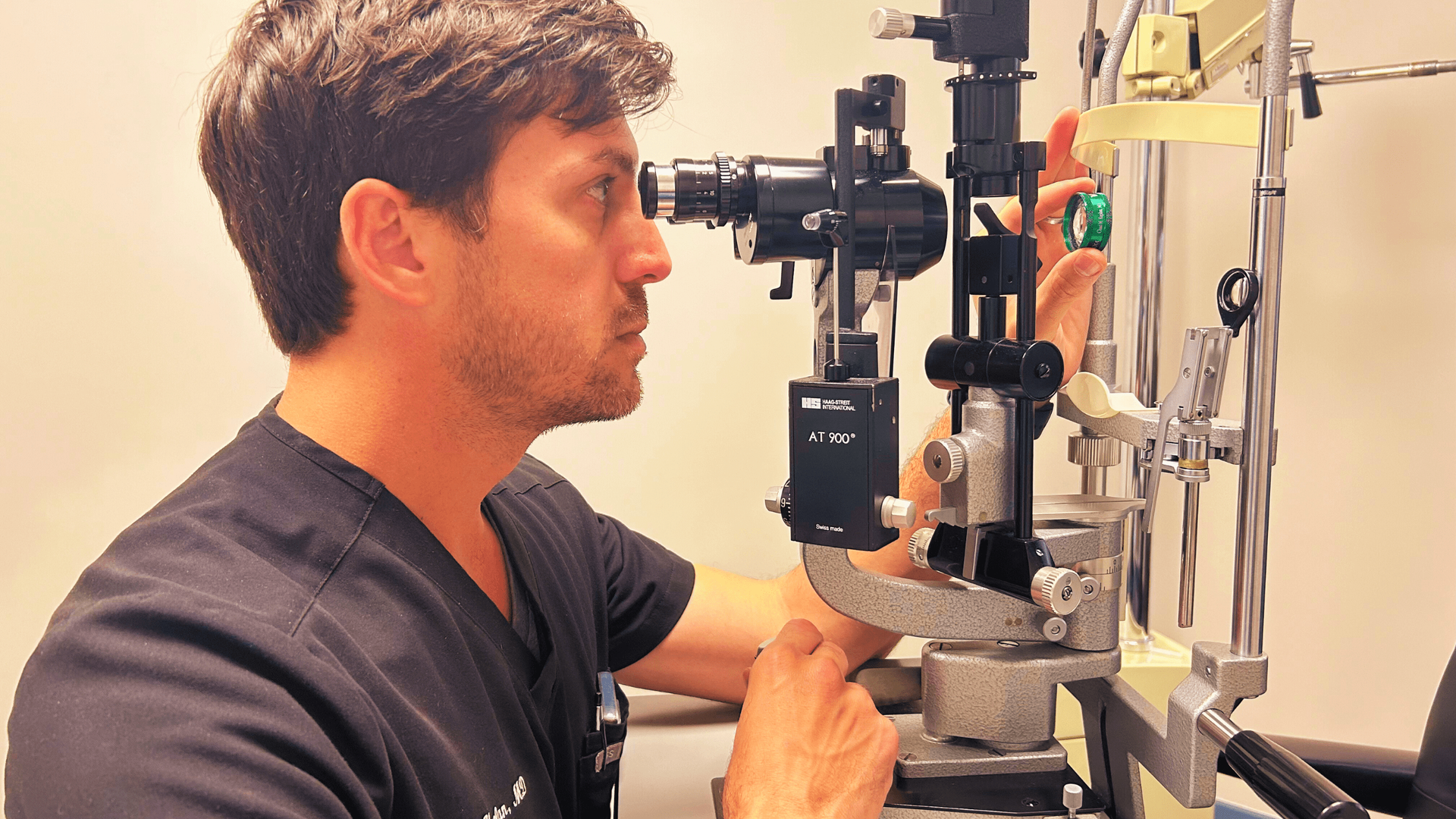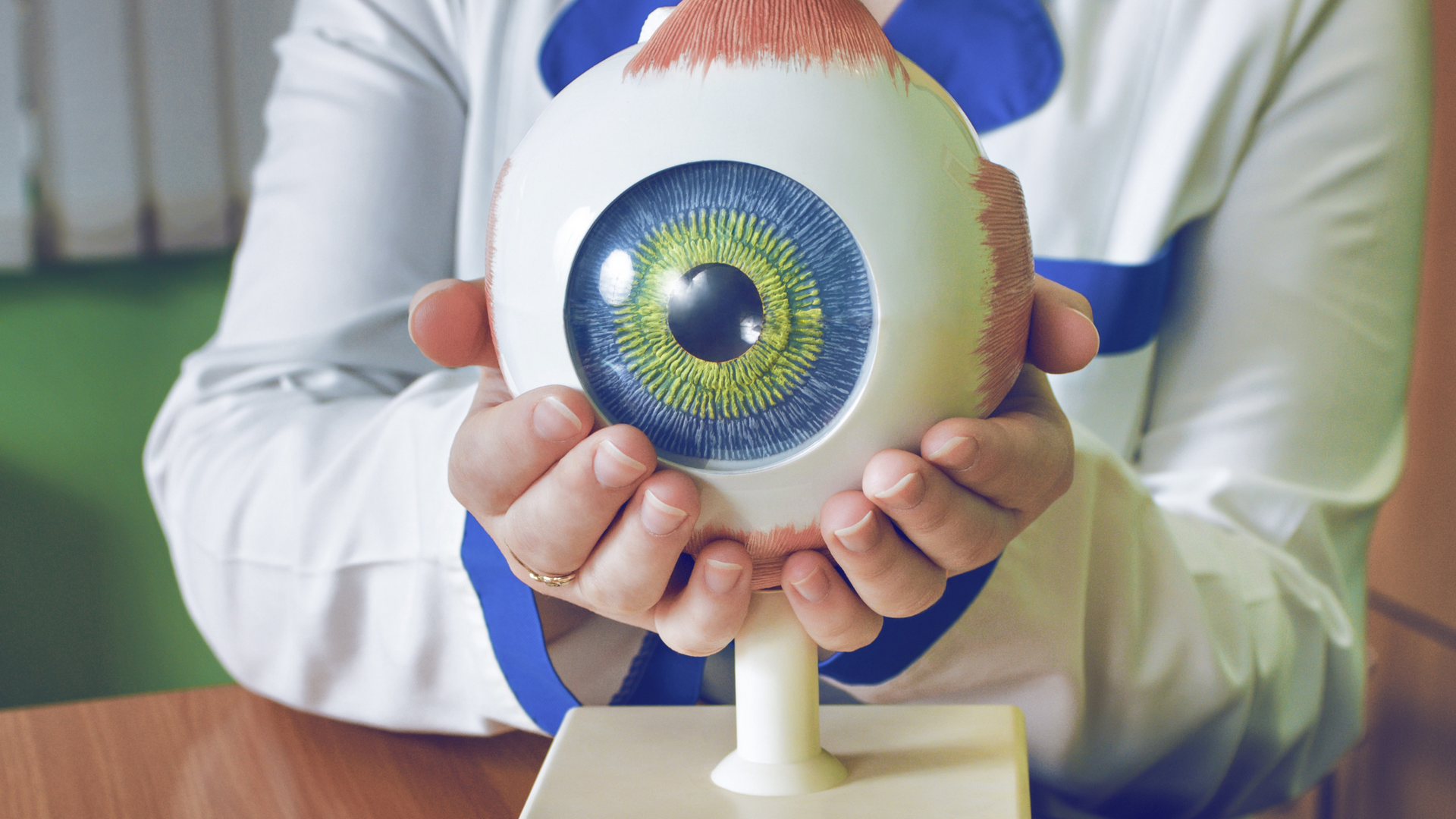Follow Us
10 Street Name, City Name
Country, Zip Code
786-829-6395
contact@ophthalmologistmiami.com
Who is the Best Ophthalmologist in Miami?
Searching for the top eye doctor in Miami? With so many options to choose from, it can be tough to identify the best ophthalmologist in Miami for your needs. This guide will walk you through the key factors to consider and provide an overview of the top-rated ophthalmologists in Miami to help you find the right eye specialist.
How to Choose an Ophthalmologist in Miami
Finding a qualified, compassionate eye doctor in Miami is crucial to getting the best possible care for your eyes and vision. Here are some tips on how to select the ideal ophthalmologist:
- Check credentials and experience. Look for ophthalmologists who are board-certified and have many years of experience providing eye care. An ophthalmologist with 10+ years under their belt has likely seen and treated every common eye condition.
- Read reviews. Check online reviews to see what other people have said about the ophthalmologist's bedside manner, wait times, office environment, and more. This can give you a feel for what to expect.
- Consider subspecialties. Many ophthalmologists have areas of focus like glaucoma, cornea disorders, or pediatrics. Choose one aligned with your specific eye needs.
- Ask about technology. Look for an eye doctor in Miami using advanced diagnostic technology like optical coherence tomography (OCT) for detailed imaging of the eyes.
- Verify coverage. Check that the ophthalmologist takes your insurance so visits are covered.
- Evaluate office location. Pick an eye specialist with a convenient office location to make visits simpler.
Top Ophthalmologists in Miami
With many excellent eye doctors to pick from, here are some of the top-rated ophthalmologists in Miami to consider:
Dr. Chad Kaplan, MD
With over 10 years of experience, Dr. Chad Kaplan is a highly-rated ophthalmologist in Miami known for his expertise, compassion, and dedication to personalized care. He specializes in cataract surgery, LASIK, and corneal disease.
Location: Miami, FL
Subspecialties: Cataracts, Refractive Surgery, Cornea
Choosing the Best Eye Doctor in Miami for You
When selecting an eye specialist in Miami, make sure to consider your specific eye care needs and look for an ophthalmologist with expertise in those areas.
For routine eye exams and vision correction, an ophthalmologist like Dr. Chad Kaplan focused on general ophthalmology is a great fit.
If you have a complex eye condition like glaucoma or macular degeneration, choose a specialist like Dr. Chad Kaplan with advanced subspecialty training.
For inflammatory eye diseases or dry eye, Dr. Chad Kaplan's dual training in ophthalmology and rheumatology can provide integrated, precise treatment.
Schedule consultations to meet potential doctors in person and get a feel for their approach. Together, you can determine the best ophthalmologist in Miami for your eyes and vision goals.
Frequently Asked Questions About Ophthalmologists in Miami
Here are answers to some common questions about finding and visiting an eye doctor in Miami:
How can I find an ophthalmologist near me in Miami?
Use online doctor finder tools to locate ophthalmologists’ office locations and find one close to your home or workplace. Most insurer websites have doctor finders to pinpoint in-network eye doctors near you.
How much does it cost to see an ophthalmologist in Miami without insurance?
The cost of an ophthalmologist visit in Miami can range from $100-$300+ depending on the tests performed. Call the office to ask for cash pay rates and discounts for uninsured patients.
What conditions do ophthalmologists treat?
Ophthalmologists can diagnose, manage, and perform eye surgery for all eye disorders including glaucoma, cataracts, diabetic retinopathy, macular degeneration, dry eye, infections, injuries, and more. They are eye care experts.
Do I need a referral to see an ophthalmologist?
You do not need a referral to see an ophthalmologist. You can call and schedule a visit directly without seeing an optometrist first for most conditions.
What types of surgeries do ophthalmologists perform?
Ophthalmologists can surgically treat cataracts, glaucoma, refractive errors like nearsightedness, retinal detachment, tumors, eye trauma, corneal transplants, and more. They are specially trained to operate on the eyes.
How often should I get a comprehensive eye exam from an ophthalmologist?
The American Academy of Ophthalmology recommends a baseline eye exam at age 40, then regular exams every 2-4 years ages 40-54, every 1-3 years from 55-64, and annual exams at 65+. Those with eye conditions may need more frequent monitoring.
Can an ophthalmologist prescribe glasses or contacts?
Yes, ophthalmologists are licensed to conduct eye exams and write prescriptions for vision correction including glasses or contact lenses if needed. They also treat medical eye conditions.
What certifications should a good ophthalmologist have?
Look for ophthalmologists board-certified by the American Board of Ophthalmology, which requires extensive education, training, testing, and recertification. Many also have fellowship training in subspecialties.
When to Visit an Ophthalmologist: Common Eye Conditions
Wondering when it's time to see an ophthalmologist? If you're experiencing any of these common eye conditions, make an appointment with an eye doctor in Miami for an evaluation:
Vision Changes
- Blurry vision
- Double vision
- Flashes of light
- Floaters or dark spots in vision
- Halos around lights
- Loss of peripheral or side vision
Eye Pain or Discomfort
- Burning or stinging eyes
- Itchy eyes
- Sharp eye pain
- Dull aching around the eyes
- Feeling of something in your eye
Eye Appearance Changes
- Eyes turning in or out
- Pupils different sizes
- Drooping eyelid
- Redness
- Swelling around the eyes
- Bump or lesion on eyelid or eye
Eye Injuries
- Foreign object in eye
- Chemical exposure to eyes
- Puncture wound or eye trauma
- Orbital fracture
- Detached or torn retina after eye injury
Watery Eyes
- Excess tearing or watery eyes
- Thick yellow discharge from eyes
Dry Eyes
- Dry, gritty sensation
- Stinging, burning or scratchy feeling
- Eyes fatigue easily
Itchy Eyes
- Itchy eyes, lids, lashes, or area around eyes
- Rubbing eyes excessively
See an ophthalmologist right away if you experience a sudden loss of vision, severe eye pain, injury to your eye, or other concerning symptoms. Many eye diseases like glaucoma and macular degeneration can progress and cause permanent vision loss without prompt treatment. Don’t wait with eye issues — regular eye exams and early intervention are key!
Types of Miami Ophthalmologists: Choosing the Right Specialist
Miami has eye doctors with every ophthalmology specialty. Here are the different types of ophthalmologists and when to see each specialist:
Comprehensive Ophthalmologists
Comprehensive ophthalmologists provide complete eye care from routine vision exams to diagnosing and treating all types of eye diseases. They’re experts in medical management of conditions like glaucoma and surgery for issues like cataracts. See them for:
- Annual eye exams & vision testing
- Eyeglasses/contact lens prescriptions
- General eye complaints and conditions
- Cataract surgery
- Minor eye surgery
Cornea Specialists
Cornea specialists diagnose and treat cornea disorders like infections, injuries, and blindness. They perform transplants and surgery on the cornea. See them for:
- Corneal ulcers
- Keratoconus
- Fuchs' dystrophy
- Corneal swelling
- Corneal scarring or opacities
- Corneal transplant surgery
Retina Specialists
Retina specialists treat disorders of the retina, including diabetes-related damage, macular degeneration, and retinal tears/detachments. They perform complex retina surgery. See them for:
- Diabetic retinopathy
- Macular degeneration
- Retinal vein occlusion
- Retinal tears, holes, detachments
- Flashes, floaters, curtain vision
- Vitreoretinal surgery
Glaucoma Specialists
Glaucoma specialists diagnose and treat all types of glaucoma. They perform surgeries like trabeculectomy and laser procedures to reduce eye pressure and prevent vision loss. See them for:
- Open-angle, closed-angle, and secondary glaucoma
- Ocular hypertension
- optic disc changes suspicious for glaucoma
- Glaucoma-related vision loss
- Laser and surgical glaucoma treatments
Oculoplastic Specialists
Oculoplastic specialists perform reconstructive and cosmetic eyelid surgeries. They treat orbital disorders and diseases of the eyelids, tear ducts and orbit. See them for:
- Droopy eyelids
- Eyelid tumors
- Graves eye disease
- Eyelid inflammation or infection
- Cosmetic eye and eyelid surgery
- Disease of the orbit and tear ducts
Top Eye Hospitals and Clinics in Miami
In addition to individual ophthalmologists' practices, Miami has some excellent eye hospitals, surgical centers, and specialty clinics. Here are some top options:
South Florida Eye Health
South Florida Eye Health is ranked the #1 eye hospital in the US. They have renowned ophthalmology specialists in every subspecialty, cutting-edge treatments, 24/7 urgent eye care, and research programs.
The Miami Eye Institute
With 4 locations across Miami-Dade county, the Miami Eye Institute provides a full range of advanced vision care with onsite optometry, ophthalmology, and opticial services.
Stein Eye Institute
The Stein Eye Institute offers comprehensive vision care with advanced LASIK laser vision correction, cataract surgery with premium lenses, and corneal transplant procedures.
Florida Eye Microsurgical Institute
Located in Miami, this center specializes in advanced anterior segment procedures like Premium IOL cataract surgery, corneal transplants, and laser vision correction procedures.
Recommended Diagnostic Tests at Your Eye Exam
To evaluate your eyes fully and detect potential problems, your ophthalmologist may recommend some of the following tests at your dilated eye exam:
Visual Acuity Test
This checks your vision clarity at various distances with a Snellen chart. It detects nearsightedness, farsightedness, astigmatism, and other focusing errors.
Refraction Test
This test determines your eyeglass prescription by testing your vision with various lenses. It finds the exact correction you need for clear sight.
Pupil Dilation
Drops enlarge your pupils so your ophthalmologist can examine the back of your eye in detail for signs of conditions like cataracts, glaucoma, retina problems, and optic nerve damage.
Eye Pressure Test
This quick and painless puff of air measures the pressure in your eyes to screen for elevated pressure and glaucoma risk.
Slit Lamp Exam
Your ophthalmologist uses a slit lamp microscope with a bright narrow beam of light to magnify and inspect your corneas, lens, vitreous humor, and other structures.
Retinal Imaging
Advanced imaging like optical coherence tomography (OCT) provides a highly detailed 3D scan of your retina to help detect macular degeneration, diabetic damage, glaucoma and other issues.
Eye Health Tips: Protecting Your Vision
Keep your eyes healthy and vision sharp with these opthalmologist-recommended tips:
Get Regular Eye Exams
See an ophthalmologist in Miami for a baseline exam by age 40, then every 2-4 years until 55, every 1-3 years from 55-64, and annually at 65+. High risk people should be monitored more frequently.
Wear UV Blocking Sunglasses
Protect your eyes from sun damage by wearing sunglasses with UV 400 protection when outdoors. Too much UV exposure raises your risks for cataracts, macular degeneration and growths on the eye.
Quit Smoking
Smoking increases the risks of cataracts, optic nerve damage, macular degeneration and eye inflammation. Quitting can greatly improve your eye health.
Eat an Eye-Healthy Diet
Eat plenty of dark leafy greens like spinach, citrus fruits, nuts, omega-3 fatty acids from fish and avocados to get antioxidants, vitamins and minerals that support eye health.
Exercise and Control Diabetes
Diabetics are at high risk for vision loss from diabetic retinopathy. Keep blood sugar well controlled and get at least 150 minutes of exercise weekly to preserve eye health.
Protect Eyes From Work Hazards
Wear protective goggles when doing tasks where debris or chemicals could enter eyes. Be vigilant about eye safety if you work with hazardous materials.
Frequently Asked Questions
Q: How do I make an appointment with an ophthalmologist in Miami?
A: You can call the ophthalmologist's office directly and schedule a new patient appointment. Many also allow you to book appointments online through their website or portal. Be prepared to provide your insurance information when booking.
Q: What qualifications should I look for in an ophthalmologist?
A: Look for ophthalmologists who are board-certified by the American Board of Ophthalmology and fellowship-trained in your condition. Check they have 10+ years of experience and use advanced technology like OCT retinal imaging in their practice.
Q: What type of surgery does an ophthalmologist perform?
A: Ophthalmologists can surgically treat all eye disorders. Common eye surgeries include cataract removal, corneal transplants, glaucoma surgery, laser eye surgery for vision correction, eyelid surgery, vitrectomy for the retina, and surgery for eye injuries or cancer.
Q: How can I tell if an ophthalmologist is reputable?
A: Reputable ophthalmologists will be board-certified, have years of experience, use the latest technology, and be affiliated with top hospitals and medical schools. Check reviews and ratings by other patients. Ask your primary doctor for referrals too.
Q: Are ophthalmologists covered by insurance?
A: Most health insurance plans cover ophthalmologist visits, exams, and medically necessary surgery, especially if you see an in-network provider. Check your specific plan details to understand your eye care benefits and costs like copays or coinsurance.
Conclusion
Finding the best ophthalmologist in Miami for your eye care needs is an important decision that requires some research. Schedule consultations and get a feel for different doctors' personalities, experience, and hospital affiliations. Consider your specific eye health goals and conditions, and look for an ophthalmologist with proven expertise treating issues like yours.
While there are many excellent options to choose from, Dr. Chad Kaplan stands out as top specialist based on his decades of experience, accolades, and satisfied patients. Remember - your eyesight is precious, so take the time to find just the right ophthalmologist you trust for optimal care. With the right eye doctor, you can have peace of mind knowing your eyes are in the most capable hands. Here's to healthy eyes and clear vision for years to come!
If you're interested in learning more about our Ophthalmology Miami, please feel free to read more on our Cataracts or Glaucoma services. Also, see what our patient reviews and other blog posts about cataracts and glaucoma.


Call the Ophthalmologist Miami team to discuss how we can help you with your glaucoma and cataract treatment!
Ophthalmologist Miami is a Miami eye doctor that has treated eye diseases and performed Glaucoma surgeries, Cataract Surgeries for hundreds of patients in the Miami, Fort Lauderdale, and South Florida metropolitan area.
Made with ♥ in Miami, FL




